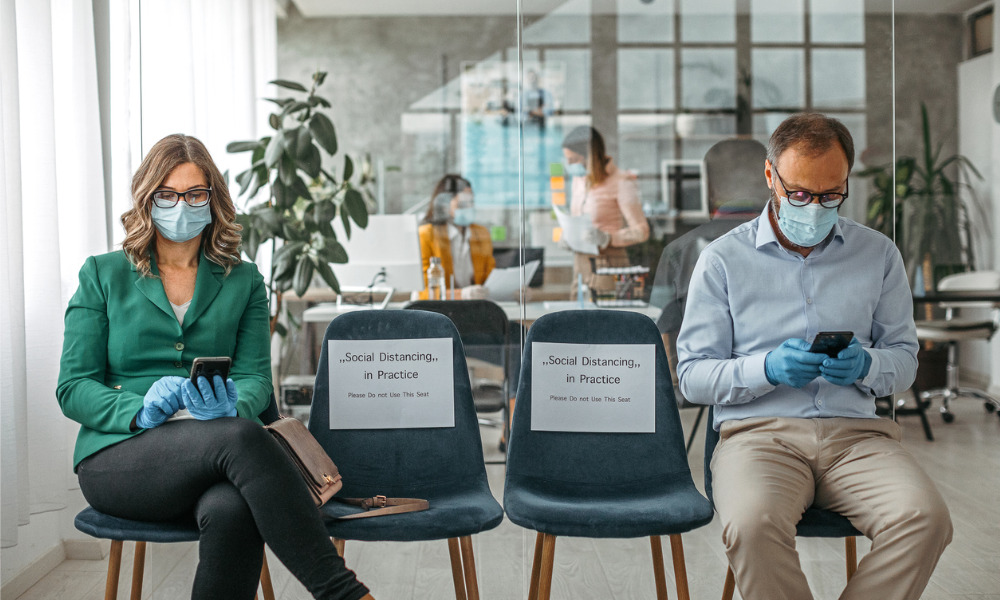
'The sudden and dramatic change in the workplace landscape has accelerated emerging trends'

Workers and leaders are both calling for permanent changes in how and where they work, workplace relationships and future skills, according to new research.
The Adecco Group have released the results of its latest study, Resetting Normal: Defining the New Era of Work, examining the expected short- and long-term impact of the pandemic on resetting workplace norms.
Fieldwork was conducted in May 2020, with 8,000 office-based respondents (aged 18-60) across Australia, France, Germany, Italy, Japan, Spain, the UK and the USA.
The Adecco Group's Chief Executive Officer, Alain Dehaze, said the world of work will never return to the 'normal' we knew before the pandemic struck.
“The sudden and dramatic change in the workplace landscape has accelerated emerging trends such as flexible working, high-EQ leadership, and re-skilling, to the point where they are now fundamental to organisational success,” said Dehaze.
“As many countries emerge from the acute crisis phase of the pandemic, employers have an opportunity to 'hit reset' on traditional workplace practices - many of which have remained largely unchanged since the industrial revolution.”
Read more: COVID-19: Top priorities for HR leaders revealed
Dehaze said the research highlights that employee attitudes have shifted and gaps between workforce expectations and entrenched labour market processes have been exposed.
“As we step into the new era of work, now is the time to establish better norms that will enable a holistically healthy, productive and inclusive workforce into the future."
Moreover, the research revealed that the working world is ready for a new "hybrid" model, with three quarters (74%) of workers surveyed saying a mix of office-based and remote working is the best way forward.
The universal ideal of spending half (51%) of their time in the office and half working remotely (49%) transcends geographies, generations and parental status.
Company executives agree, with almost eight in ten (77%) C-suite leaders saying businesses will benefit from increased flexibility.
Another stark finding could signal the end of the hours-based contract and 40-hour week. More than two thirds (69%) of workers are in favour of "results-driven work," whereby contracts are based on delivering against business needs rather than working a set number of hours.
Read more: COVID-19: How to work at home and stay sane
The findings also showed a high proportion of C-suite executives (74%) agree that the length of the working week should be revisited.
The pandemic has also demanded a new set of leadership competencies and these expectations are expected to accelerate a reinvention of the modern-day leader.
Emotional intelligence has clearly emerged as the defining trait of today's successful manager, but the soft skills gap is evident.
Over a quarter (28%) of those questioned said their mental wellbeing had worsened due to the pandemic, with only 1 in 10 rating their managers highly on their ability to support their emotional health.
The findings also demonstrate a universal appetite for mass upskilling. Six in 10 say their digital skills have improved during lockdown, while a further two thirds (69%) are looking for further digital upskilling in the post-pandemic era.
A broad range of skills development were identified as important by the workforce, including managing staff remotely (65%), soft skills (63%) and creative thinking (55%).
The findings also highlighted the importance of sustaining trust in the new working world.
Companies have risen to the challenge of supporting their people during the crisis, and as a result, trust in corporations has increased. Indeed, 88% say that their employer met or exceeded their expectations in adapting to the challenges of the pandemic.
And with this increased trust comes increased expectations.
While the future of work is a collective responsibility, 80% of employees believe their employer is responsible for ensuring a better working world post-COVID and resetting norms, compared with 73% who say the government is responsible, 72% who agree it is an individual responsibility, and 63% who believe it is in the hands of labour unions.